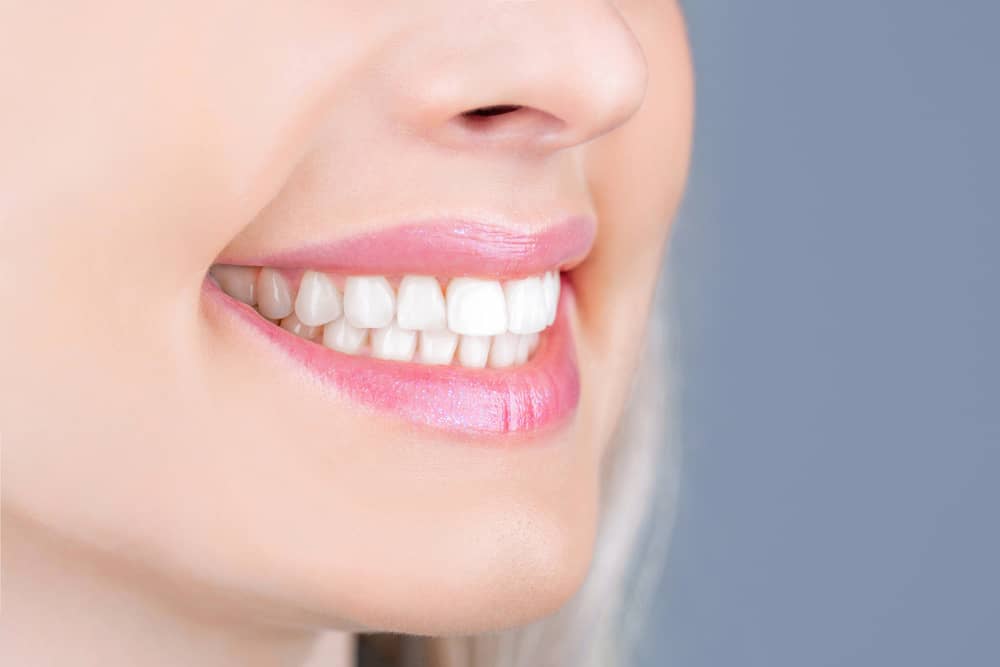Dentures are removable dental prosthetic devices used to replace missing teeth and the surrounding tissues. They are designed to mimic the appearance and function of natural teeth, helping individuals with missing teeth regain their ability to eat, speak, and smile. However, dentures have to be removed as do not provide stability compared to dental implants. The unique All-on-4 tooth restoration treatment uses only four dental implants to support a full dental bridge and ensures jawbone stability while protecting your smile and tooth functionality.
Downside of Dentures
While dentures can be an effective solution for replacing missing teeth, they also have several downsides and limitations, including:
Difficulty Eating: Adjusting to eating with dentures can be challenging. They may not provide the same biting and chewing efficiency as natural teeth. Certain foods, especially hard and sticky ones, can be particularly problematic. Many denture wearers need to modify their diets to avoid these issues.
Speech Problems: Dentures can affect your speech, causing slurring or difficulty pronouncing certain words. It may take some time and practice to adapt to speaking with dentures.
Discomfort and Irritation: Dentures can cause gum soreness and irritation, particularly during the initial adjustment period. Ill-fitting dentures can lead to painful pressure sores, and constant movement of dentures can cause sore spots on the gums.
Loss of Taste: Dentures cover the roof of the mouth (palate) in the upper jaw, which can interfere with the sense of taste and the ability to fully enjoy the flavors of food.
Maintenance and Cleaning: Dentures require regular cleaning and maintenance. They need to be removed for cleaning after meals and at night. Neglecting proper cleaning can lead to bad breath, staining, and the growth of bacteria and fungi.
Replacement and Repairs: Dentures are not a permanent solution and may need to be replaced or adjusted over time. They can wear down, break, or become ill-fitting, requiring frequent visits to the dentist.
Aesthetic Limitations: While modern dentures are designed to look natural, they may not match the appearance of natural teeth perfectly. Some people may be self-conscious about the way their dentures look.
Bone Resorption: Over time, wearing dentures can lead to a condition called bone resorption, where the jawbone gradually shrinks due to lack of stimulation from natural teeth roots. This can result in a change in facial appearance and may require adjustments or relining of the dentures.
Cost: Dentures can be expensive, especially if you require custom-fitted, high-quality dentures. Over time, the cost of maintenance, adjustments, and potential replacements can add up.
Psychological Impact: Some individuals may experience a loss of self-esteem or confidence when transitioning to dentures, especially if they feel self-conscious about wearing them or struggle with the adjustment period.
ALL-ON-4 TREATMENT FOR TOOTH RESTORATION
All-on-4 treatment is the optimal choice for modern dental restoration. This technique uses four dental implants and a full dental bridge to restore missing teeth. Dental implants preserve the integrity of the jawbone and do not harm the gums. A dental implant is a permanent solution that is durable, will not slip, and looks just like a real tooth.
Here’s how it works:
Implant Placement: In the All-on-4 procedure, four dental implants are strategically placed in a way that maximizes the available bone volume and minimizes the need for bone grafting. Two implants are typically angled towards the front of the jaw, while two are placed toward the back. This configuration provides a strong foundation for the replacement teeth.
Temporary Prosthesis: On the same day as implant placement, a temporary prosthesis (a set of teeth) is attached to the implants. This allows the patient to leave the dental office with a functional set of teeth, eliminating the need to go without teeth during the healing process.
Healing and Integration: Over the next few months, the dental implants integrate with the surrounding bone through a process called osseointegration. This ensures the implants become securely anchored in the jawbone, providing stability for the final prosthesis.
Final Prosthesis: Once the implants have fully integrated with the bone and the healing process is complete, a permanent set of teeth (the final prosthesis) is custom-made. This prosthesis is typically made from high-quality materials and is designed to look and function like natural teeth. It is attached to the implants, providing a secure and non-removable solution for the patient.
The All-on-4 treatment concept offers several advantages:
Stability: The four strategically placed implants provide a stable foundation for the prosthesis, preventing it from moving or shifting during eating or speaking.
Improved Function: Patients can enjoy a more natural and efficient biting and chewing function compared to traditional dentures.
Aesthetics: The final prosthesis is designed to look like natural teeth, which can enhance a patient’s smile and facial appearance.
Convenience: Unlike removable dentures, there is no need for daily removal and cleaning. The fixed prosthesis is cared for much like natural teeth, with regular brushing and flossing.
Preservation of Jawbone: Dental implants stimulate the jawbone, helping to prevent bone loss over time, which can occur with traditional dentures.
It’s important to note that the All-on-4 treatment concept is a complex dental procedure that should be performed by a skilled and experienced dental professional like Dr. Sharp and his team. He’s a renowned prosthodontist having experience of more than 25 years. Dr. Bruno Sharp and his team are specialists in the restoration and replacement of teeth, today’s architects of dental treatment plans, and heralded as” the plastic surgeons of dentistry.” The expert team includes prosthodontists, a maxillofacial prosthodontist, periodontist, endodontist, general dentists, an oral surgeon and a full hygienist department ready to fulfill all your needs as patients.

